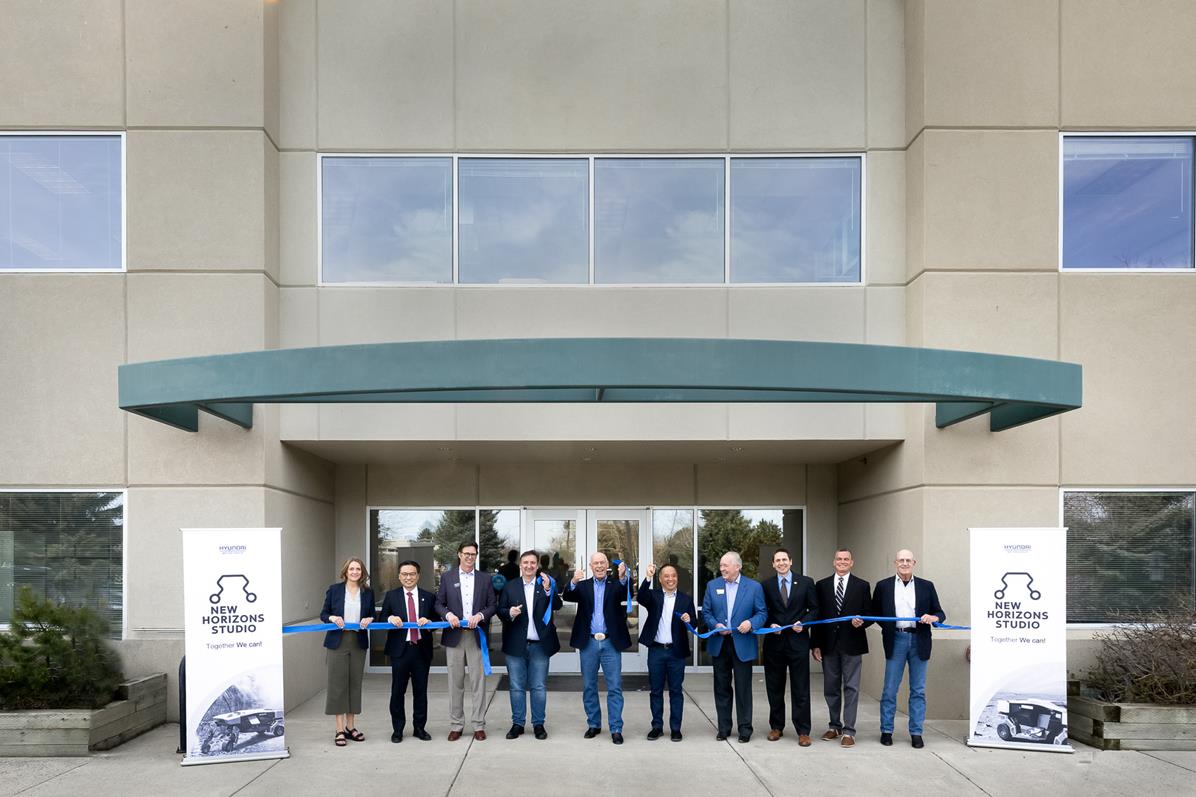Hyundai New Horizons Studio to Design and Build Ultimate Mobility Vehicles in Bozeman, Montana

- Planned investment goal of $20 million over the next five years
- All-new Research, Development and Lab Center redefines vehicular mobility with robotics and wheeled locomotion technology
- Located in Montana State University’s Innovation Campus, New Horizons Studio (NHS) Bozeman will create an estimated 50+ jobs in Montana
Hyundai New Horizons Studio (NHS), a unit focused on the development of Ultimate Mobility Vehicles (UMVs), will open a new Research, Development and Lab Center in Bozeman, Montana. NHS Bozeman is an estimated $20 million investment in Hyundai’s Progress for Humanity vision, redefining transportation with accessible, sustainable and smart mobility solutions. The all-new facility will serve as NHS headquarters and will support prototyping, field testing and application development for UMVs.
“Montana is quickly becoming a hub for high-tech companies and entrepreneurs with a growing talent pool of skilled labor in the field of engineering, research and natural science,” said Dr. John Suh, head of New Horizons Studio and vice president, Hyundai Motor Group. “Bozeman is a thriving and economic micropolitan city. Nestled near dozens of off-road trails with more than 150 miles of terrain and mountain access for UMV testing – it’s the perfect fit for our new R&D Lab.”
New Horizons Studio Bozeman
Located inside Montana State University’s (MSU) Innovation Campus, New Horizons Studio’s all-new Bozeman facility will focus on:
- Product design and development
- Market research and assessment
- Testing operations
- Composted material development and testing
- Next-generation vehicle architectures
- End-user/commercial production and smart assembly
New Horizons Studio plans to add more than 50 full-time jobs at the location over the next five years. Many of the positions will be in the research and development space and will target expertise in mechanical hardware, electrical and electronics engineering, and materials and manufacturing.
The estimated 12,000 to 15,000 sq. ft. facility will be part of MSU’s 42-acre Innovation Campus development which is home to many technology and bio-tech businesses. As a part of this group, NHS Bozeman will also have the opportunity to collaborate and work closely with the MSU student population as well as have access to state-of-the-art research and world class professors.
The Industry Building that will house NHS Bozeman will break ground starting in June 2022, while the first R&D office officially opens in June 2022.
“This is a great day for Montana. We moved quickly to capitalize on Hyundai Motor Group’s interest in our state, make this a reality, and bring more good-paying jobs to Montana. An innovative, global company investing in manufacturing and innovation, Hyundai Motor Group’s decision to bring its new facility to Montana and invest in our state is a testament to our business-friendly environment and Montanans’ strong work ethic,” said Montana Governor Greg Gianforte. “We’re thrilled our close personal relationships, outstanding business climate, talented workforce, and quality of life are attracting international attention. Montana is open for business to the world.”
Ultimate Mobility Vehicles
New Horizon Studio’s mission is to build vehicles for future customers who want or need to travel over terrains which are challenging for conventional ground vehicles. The applications for UMVs include natural resource management, disaster management, all-urban and rural logistics, construction, mining, and space resource development.
At NHS Bozeman, the team will initially focus on refining the development, testing and deployment of two UMV models. The is an uncrewed transforming intelligent ground excursion robot (similar to what was revealed at CES in 2021) designed to carry various types of payloads while traveling over treacherous terrain. The second, inspired by Elevate, is a larger (size of a two-person ATV) vehicle with robotic legs that can address challenging driving situations and potentially save lives as the first responder in natural disasters.




